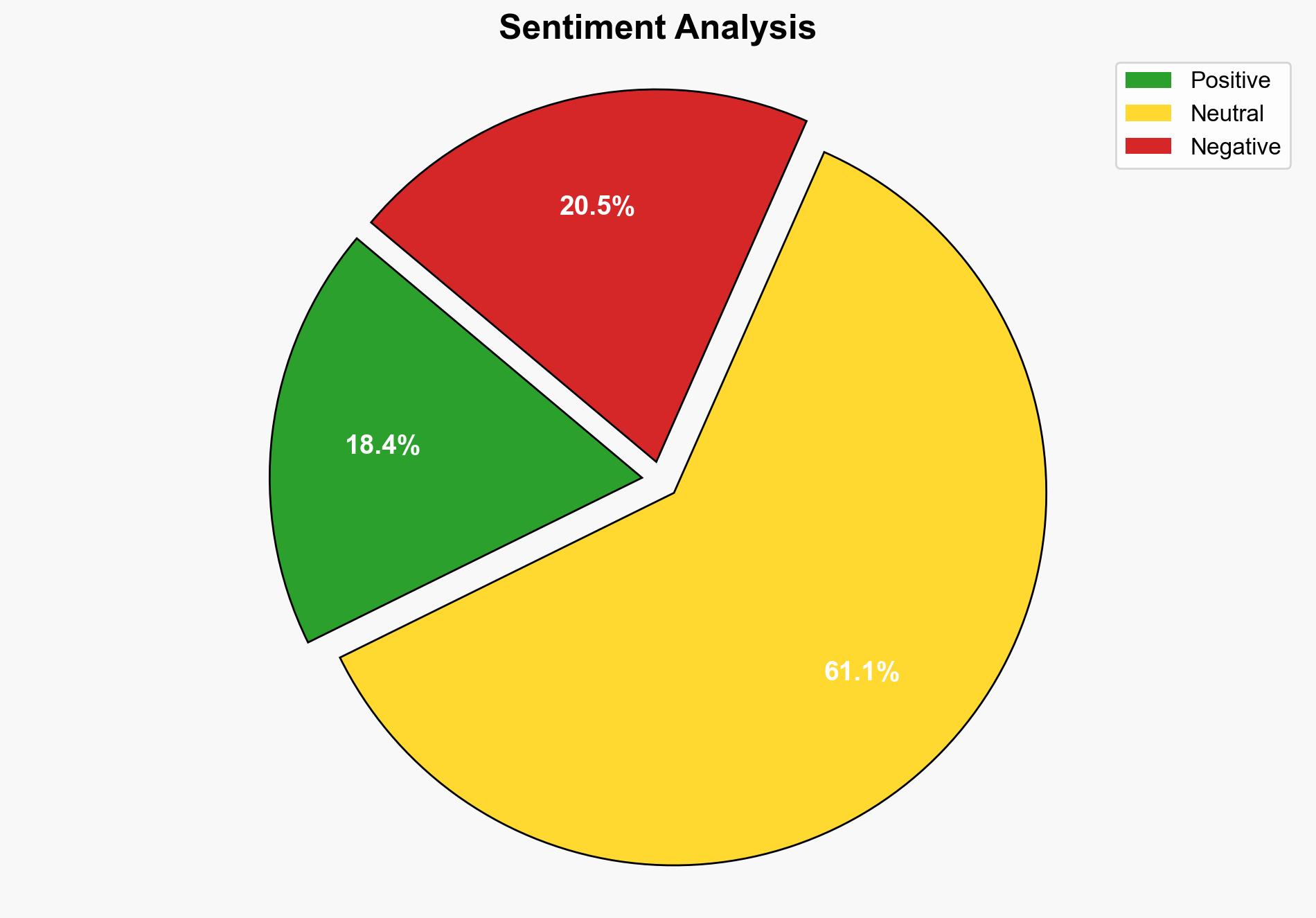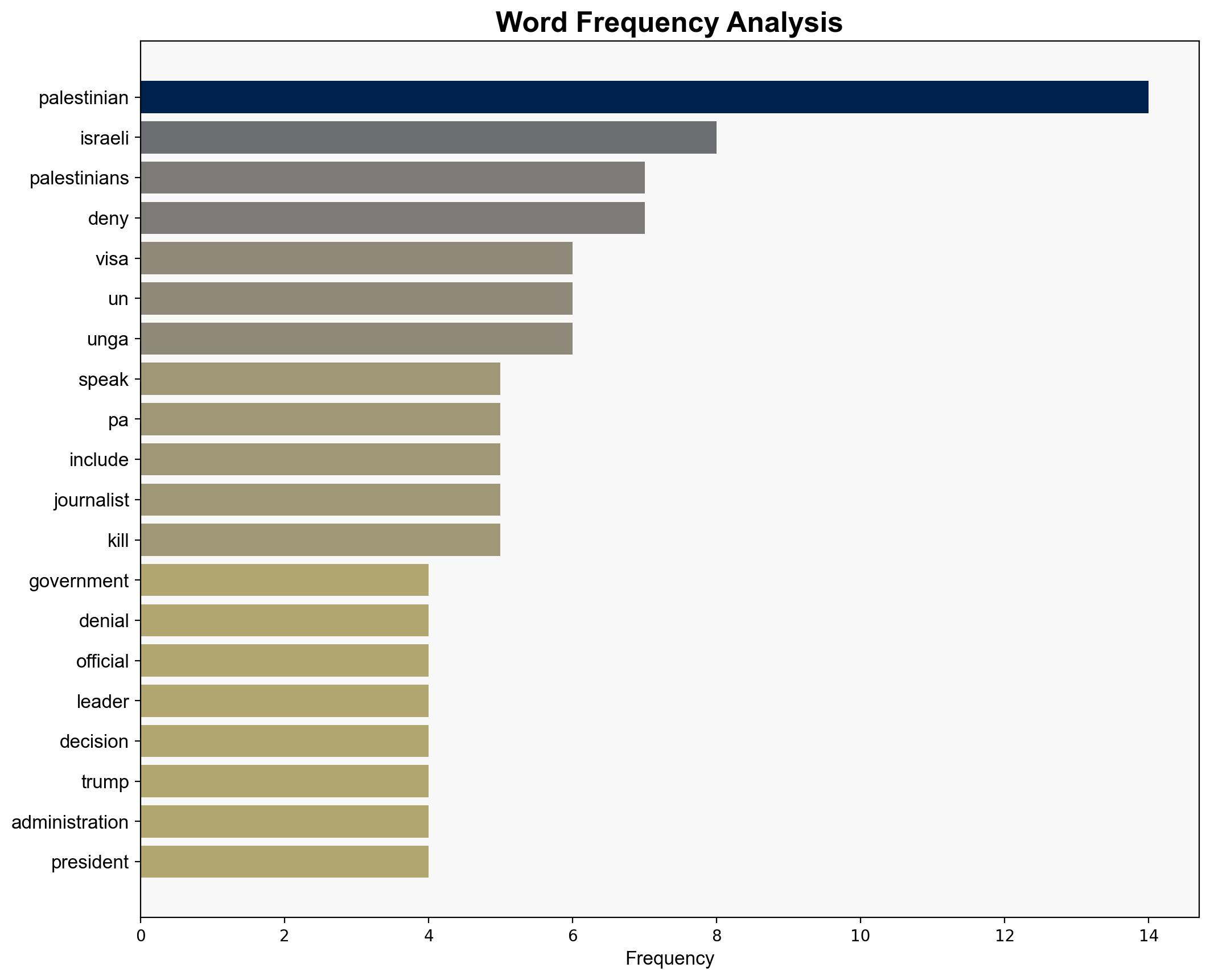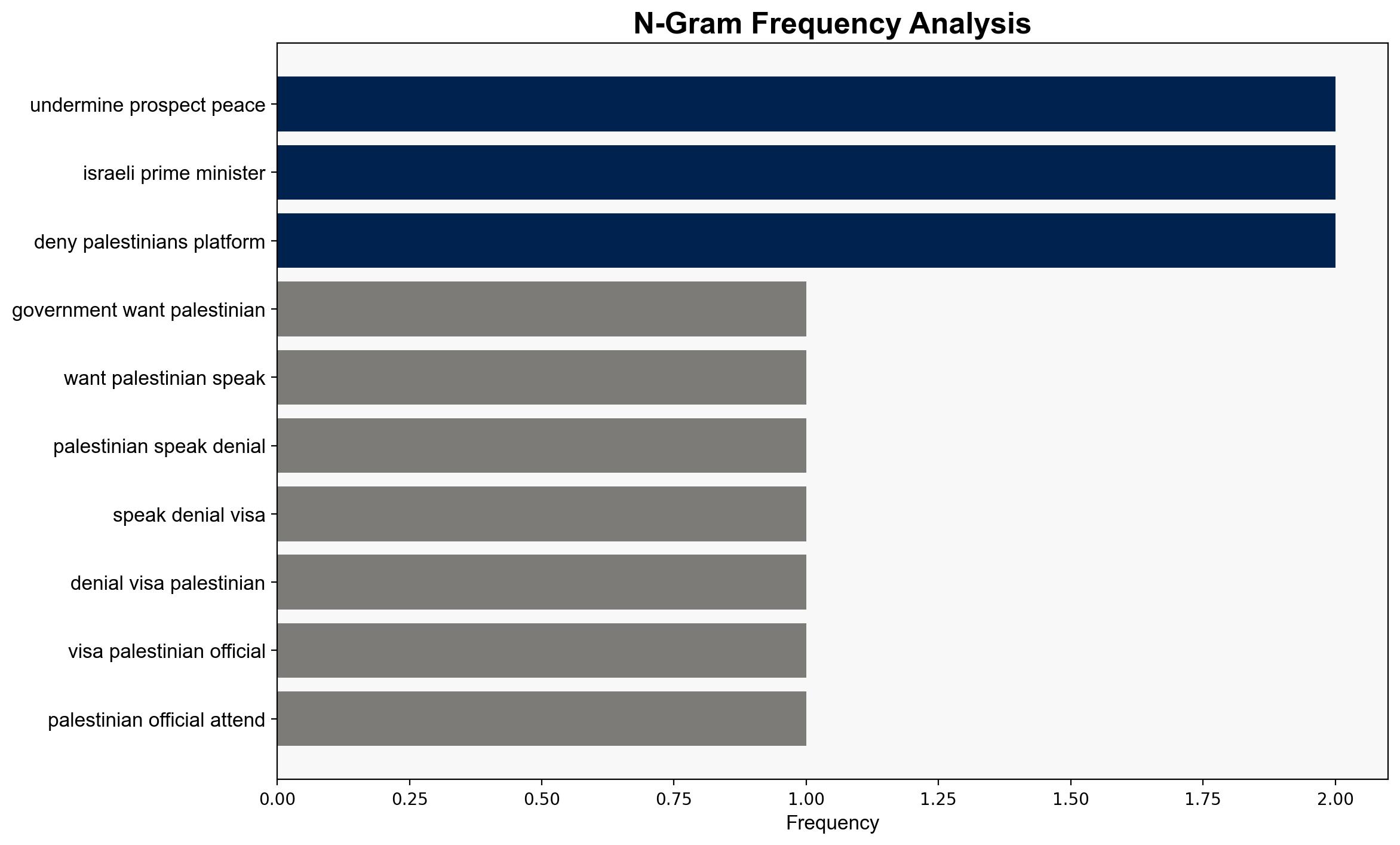The US government does not want any Palestinian to speak – Al Jazeera English
Published on: 2025-09-01
Intelligence Report: The US government does not want any Palestinian to speak – Al Jazeera English
1. BLUF (Bottom Line Up Front)
The most supported hypothesis is that the US government is strategically denying visas to Palestinian officials to align with its geopolitical interests and maintain influence over the Israeli-Palestinian conflict narrative. Confidence level: Moderate. Recommended action: Engage in diplomatic dialogue to address potential biases in visa issuance and ensure equitable representation at international forums.
2. Competing Hypotheses
1. **Geopolitical Strategy Hypothesis**: The US government is denying visas to Palestinian officials as a strategic move to support its allies and maintain control over the narrative in the Israeli-Palestinian conflict. This aligns with broader US foreign policy objectives and pressures other countries to follow suit.
2. **Security Justification Hypothesis**: The visa denials are based on legitimate security concerns, with the US government perceiving certain Palestinian officials as potential threats to national security, consistent with historical precedents of visa denials to individuals from other nations.
3. Key Assumptions and Red Flags
– **Assumptions**: The geopolitical strategy hypothesis assumes that the US prioritizes its alliance with Israel over equitable diplomatic engagement. The security justification hypothesis assumes that the US has credible intelligence supporting its security concerns.
– **Red Flags**: The timing of the visa denial coinciding with international recognition efforts for Palestine raises questions about the true motivations. The lack of specific security threats cited in the decision is a potential indicator of deception.
4. Implications and Strategic Risks
– **Geopolitical**: The US’s actions may strain relationships with countries advocating for Palestinian statehood recognition, potentially leading to diplomatic rifts.
– **Psychological**: Perceived bias in US foreign policy could exacerbate anti-American sentiment in the Middle East, complicating peace efforts.
– **Cascading Threats**: Continued denial of platforms to Palestinian voices may lead to increased tensions and instability in the region, affecting global security dynamics.
5. Recommendations and Outlook
- Engage in multilateral discussions to address the visa denial issue, ensuring transparency and fairness in diplomatic processes.
- Best Case: Diplomatic resolution leads to improved US-Palestinian relations and balanced representation at international forums.
- Worst Case: Escalation of tensions results in increased regional instability and diminished US influence in Middle Eastern diplomacy.
- Most Likely: Continued diplomatic friction with incremental progress towards addressing Palestinian representation issues.
6. Key Individuals and Entities
– Mahmoud Abbas
– Benjamin Netanyahu
– Yasser Arafat
– Matt Duss
7. Thematic Tags
national security threats, geopolitical strategy, diplomatic relations, Middle East conflict




